By Barbara @ Follow Your Own Rhythm
If you are on a path of personal growth, self-improvement, transformation or looking to make some positive changes within yourself, then this 4-part blog series is for you!
We will be covering what I believe to be the 4 keys to personal growth and transformation in 4 separate blog posts. These 4 practices will speed up your personal growth journey and help you become who you want to be FAST.
First off, let’s just talk about why personal growth is so important and how I came up with these 4 key ingredients.
WHY IS PERSONAL GROWTH SO IMPORTANT?
Personal growth means to enhance all aspects of yourself; mind, body and spirit.
Personal growth is extremely important because it builds the muscle to accept yourself for who you are, improve parts about yourself that need improvement, and heal the parts of yourself that cause you the most pain.
Personal growth, in a nutshell, helps you become who you truly are. And it’s important to be who you truly are because that alignment with your true self is what leads to inner peace, health, happiness, abundance, and freedom.
HOW I CAME UP WITH THESE 4 KEYS TO PERSONAL GROWTH
Personally, I have been on a personal growth journey ever since high school; so for about 15 years now. I've always been attracted to learning about myself, bettering myself, and finding a way to live a truly happy, free, and fulfilling life.
Looking back, I realize that without even knowing it, I always strived to be a better person, I always tried to get to the root of my issues, and I always strived to learn something new from every experience. I never settled for anything less than the truth.
This relentless way of being has always motivated me to follow my heart and search for the truth, which eventually led to my awakening when I was 28. From that point forward, my life and I would never be the same again.
I don’t say this to boast, I say this to point out how seriously I have taken my own growth and that because of this, how much my life has changed. I’ve also learned a thing or two along the way, which is what I will be sharing today.
Looking back, I can boil down the tendencies that have gotten me to where I am today to 4 main practices, which I will be sharing in this 4-part blog series.
These are the 4 key practices that have significantly helped me on my journey. They might sound simple and obvious at first, but we will go into each of them in depth so you can truly understand what they are, why they are important, and how to practice it in your own life.
So here they are…
THE 4 KEYS TO PERSONAL GROWTH AND TRANSFORMATION
1. Self-honesty – being honest with all parts of yourself (Part 1)
2. Self-awareness – being aware of yourself, how you behave, what you think, say, do, and believe (Part 2)
3. Openness and learning – being open-minded, open-hearted, constantly learning new things as well as learning lessons and wisdom from each experience (Part 3)
4. Implementation – applying and living the lessons you have learned (Part 4)
In this blog post, we are covering Part 1, which is SELF-HONESTY.
This blog post will be quite lengthy as we will cover in great detail:
- what self-honesty is
- what it looks like in real life
- why it’s so important
- how you can practice being more honest with yourself
What is Self-Honesty?
Self-honesty is basically admitting to yourself the truth.
It is admitting to yourself how you truly feel, why you did what you did, why you said what you said, what you did or didn’t do, what you truly want, mistakes you have made, why you acted a certain way, why you believe what you believe, what you truly fear, what your insecurities are, how you feel about yourself, what your inner pains are, the emotional baggage you carry and where it came from, and basically the real reasons behind your motivations, desires, behaviors, habits, feelings, inner pains, and beliefs.
Self-reflection is a HUGE part of self-honesty; they sort of go hand in hand. The reason you're able to be honest with yourself is because you take the time to reflect on who you are, what you did, how you feel, where you came from, etc.
Self-honesty doesn’t necessarily require that you are honest about these things to other people, but it DOES require that you are honest about them to yourself, and that you are honest about not being honest about them to the world. :)
Self-honesty is also about taking responsibility for yourself, for your actions, and for your feelings, and taking ownership of who you are, as opposed to blaming your past, other people, and external circumstances for your current state of being.
Real Life Examples of Self-Honesty
EXAMPLE 1: You are caught in a very common social situation: having a conversation with another person. This conversation starts to turn into a debate or an argument as you’re each fighting to prove your point. However, in the midst of this argument, the other person makes a valid point that sort of goes against what you've been saying. What do you do? You admit to yourself that this person is right or has a valid point and stop arguing. You then acknowledge this person's point or give them credit even though it's going to weaken your argument. And then, you watch how this openness, honesty and vulnerability shifts your whole conversation.
Being honest while having a conversation with another person basically requires that you see and stay open to the other person’s perspective while trying to make your point, and not getting so stuck up on your perspective that your sole mission becomes to prove that you are right. Even if you don't want to tell the other person that they are right because you don't want to feel embarrassed or be wrong, at least tell yourself how you feel, and move the conversation forward from that new and open perspective. Eventually though, when you practice self-honesty on a regular basis, you will start to feel more comfortable with admitting when you're wrong, as you'll have a stronger urge to align your behaviors with your feelings.
Tip for staying honest with yourself during a conversation: When in the midst of a conversation with another and it turns into an argument, you have to see: Are you arguing just to be arguing? Are you arguing just to be right? Are you arguing just to show off how much you know? Or are you genuinely wanting to hear what they have to say? Are you genuinely wanting to inspire or educate the other by sharing your perspective? Are you open to where the conversation may lead? Are you open to their perspective? And are you open to learning from them? If you are, then you have to drop your agenda, and be ready to speak the truth, however uncomfortable that may be.
Benefit of being open to another person's perspective: When you practice this level of self-honesty, it reinforces openness, and the willingness to learn and grow as a person because you are not just saying what you’re saying, but also listening to the other, and learning from what they have to say even if you don’t agree with it or it doesn’t align with your perspective. This is how you grow and evolve as a person.
EXAMPLE 2: Someone calls you out on something that you did. Maybe you screwed up in some way, you hurt someone’s feelings, you offended someone, or you were acting irrationally and let's say someone called you out on it. Instead of denying it, not even trying to see where they're coming from, and getting defensive and trying to justify your actions, take a moment to self-reflect and see if there is any truth to what they are saying. Ask yourself: Do they have a point? Did I come off like that? Was I being rude, selfish, irrational, reactive? Did I go against my values? Did I let my temper take over me?
Because if you immediately get into defensive mode and say "no you are wrong and I am right," then you will never look within yourself and see if there IS anything you can improve, change, or learn.
Sometimes, however, people accuse us of things we didn't actually do. They blame us for things we are not responsible for, they blow things out of proportion, they only try to see the bad in us, or they make us feel bad for something that is easily forgivable. In these cases as well, you have to be honest with yourself and see if there is anything you need to own up to.
However, if after reflection you know in your heart that you did nothing wrong and that this person is just trying to sabotage you or take their anger out on you, then you MUST NOT dwell on what they said and you MUST move on.
Benefits of sharing your truth with others: Like I said, you don’t always have to tell other people exactly how you feel inside, this is your space and your feelings, however, there are GREAT benefits to taking responsibility for your mistakes, giving another person credit, admitting that they have a valid point or changed your mind, sharing what you truly feel and think, apologizing for offending someone, and owning up to what you did.
First, let's look at the disadvantages: If you’re so afraid of admitting that you’re wrong because you don’t want to look stupid, but you know inside that you’re wrong, you are sort of being inauthentic because you’re presenting one thing to the world, and feeling another way on the inside. And if you get into the habit of misrepresenting yourself, you will not only be misperceived by others, but you might also start believing your own lies, get lost in them, and eventually deny your own truth. So my recommendation is to speak what you feel as much as you can, no matter how uncomfortable it may be.
The beauty in this whole thing though is that when you admit out loud that you made a mistake, or that you’re wrong, or that the other person has a good point, then the other person is going to be totally caught off guard that you’re not arguing anymore just to argue or just to be right or just to prove your points; and they will see that you’re actually listening to them and trying to decipher their message.
Your openness, your humility, your vulnerability, and your honesty is going to make the other person feel so much more comfortable talking to you and they will open up more to your perspective as well so that you can actually have a genuine conversation and learn something from each other. This sense of honesty will also help you connect with them on a deeper level, as they will feel your sense of appreciation for them. It will also help you gain respect as you are not caught up on being right but on having a open conversation. You will also exemplify HOW to be vulnerable with another while not loosing confidence or credibility. It's really a win win win.
EXAMPLE 3: When you’re self-reflecting and trying to get to know yourself on a deeper level or trying to get to the bottom of your issues. In these moments of deep reflection, you need to be totally honest about the "darkness" within. What I mean by this is that when you are trying to figure out who you are and what is holding you back from who you want to be, you have to bring the pain, the fear, the scars, the trauma, the childhood memory, the past experience, the abuse, the shame, the guilt, the insecurity, the anxiety, the deep rooted problem TO THE SURFACE and face it head on. You can't ignore it, suppress it, deny it, or escape from it if you want to find true happiness and inner peace.
And just to note, this isn’t about self-criticism, self-hatred, self-judgment, and self-sabotage, it’s just about getting real with your “shadow side” and seeing it from an unbiased, compassionate, and open perspective.
This is important because if you don’t admit to yourself that you are an angry person and that the way you treat people is disrespectful and abusive, then how will you be able to fix it? How will you ever get to the root of the problem?
So as you sit at home pondering who you are and what parts about yourself need improvement, make sure to be super honest about the darker aspects of yourself, the ones that not many of us want to see. This is where you admit that you have a problem. This is where you admit that you're afraid of the truth or that you are scared to feel and face your inner pains. This is where you become honest with yourself about what you’re most scared of and what could be limiting you, so that you can work on resolving it.
If you would like some guidance on initiating this process, check out my 100 question workbook designed to get to know yourself on a deep, true, and real level.
Why is Self-Honesty Important?
Being brutally honest with yourself about your feelings, actions, habits, motivations, etc., means that you bring these things into the light instead of keeping them stuck, suppressed and hidden.
The only way you can grow, improve, and heal is by shining light on the dark. When you bring these things to the surface, you are not judging or criticizing yourself, you simply see it for what it is. By simply observing it, you can self reflect and see what you did wrong, what you did right, what you should continue, and what you can do better next time. This reflection helps you learn about yourself and the deeper you go, the more you start to transform.
Self honesty is also extremely important for personal growth because the whole idea behind transformation is moving beyond the illusion of who you think you are, and into who you truly are. And this requires absolute self-honesty. If you lie to yourself, you are strengthening your false self, and moving away from transformation.
Why do we avoid self-honesty?
One of the reasons so many of us are not honest with ourselves, is because we are afraid of what we will find.
When we start digging, we find things we don't want to see or deal with. Some deeply buried stuff starts to come up such as emotional baggage, fears, and traumas and we feel uncomfortable with the pain that we feel.
We have to actually admit that we are scared, that we are wrong, that we made a mistake, that we aren't happy, and that we hate where we are in life, which makes us feel like crap.
It makes us feel inferior, not good enough, "less than," weak, and small, and people don't want to feel these things. So they choose to ignore how they truly feel so they don't have to feel the pain. Eventually, they get so used to lying to themselves that they start to believe their own lies.
This is dangerous not only because then you are just building lie on top of lie on top of lie, but because the truth always prevails. The truth always comes out, and if you are resisting it instead of welcoming it, then it will show it’s face in pretty uncomfortable situations where you WILL have to face it but you won't like it.
So the main takeaway is to be as honest as you can with yourself, even if it hurts, is scary, uncomfortable, or makes you feel stupid or weak, because the truth is the only way you can get to peace, freedom, and happiness.
How to be more honest with yourself:
Be brave enough to face the truth. You're going to have to accept that you're going to deal with some unwanted and painful feelings. And that's ok, because you need to go through that to truly get to know yourself and become the person you want to be.
Accept that when you are being honest with yourself you are... going to have to be wrong sometimes, own up to what you said or did, admit that you made a mistake, take responsibility for your actions, swallow your pride, and sometimes feel uncomfortable. But that’s just part of the journey.
Speak up and give credit to others. Here is what you can say to people when you notice that they are correct in the midst of a debate or argument without sounding 'stupid:' "hey, that is actually something I never thought about ... I never looked at it that way ... I’ll definitely look into that ... that actually makes a lot of sense ... I like how you said that ... that made me think ... that's a good point ... thanks for sharing that perspective ... that's a refreshing way to look at something."
Self-reflect often. Reflect on how you acted, what you said, and if it was authentic to you, and then learn from that experience and do it better next time. You can do this by starting a journal where you share your true feelings and reflect on your day: what you did, how you felt, what you can learn, how you can be more honest next time.
Ask yourself questions while you are having conversations with people, or while you are feeling certain emotions. Questions such as “why do I feel like this? Why am I saying this? Is there some truth to what that person is saying? Am I just trying to be right right now? Where is this emotion coming from? What triggered this feeling?” Asking yourself these types of questions will allow you to tap into what’s really going on inside.
You can grab an extended and printable version of these questions as a FREE downloadable worksheet in my resource library so you can start self-reflecting!
- Identify when your reasons behind something are just excuses and justifications or if they are real reasons for doing or not doing something. Sometimes we come up with hundreds of excuses for not doing something, and actually start to believe our own excuses, when really we just don’t want to do something because we are too lazy, too scared, or just not ready. At least admit that you are not ready, or lazy, or scared, instead of having to lie to yourself (and other people) about why you don’t want to do something.
Be open to new perspectives. Try not to get caught up in your own story and in your own point of view, but rather, stay open to what other people have to say and to new experiences, and see if you can learn something from them.
Overall, self-honesty just requires that you go within yourself, ask yourself questions, answer them truthfully, self-reflect always, and just remain aware of what is going on inside of you (which we talk more about in this post on self-awareness).
When you make self-honesty your priority, it will make your life so much easier, and your growth so much quicker. To me, this is the ultimate tool for personal growth and transformation.
This is also a great time for you to be honest with yourself about whether or not you’re honest with yourself. You can quickly say "this doesn’t apply to me, I always tell myself the truth," but then again, do you? This is something to really start paying attention to in your life and see just how honest you are to yourself.
CHECK OUT PART 2, 3 AND 4 OF THE SERIES:
If you found this article helpful, please share it with others!
I want to know! What is the hardest part about being honest with yourself (and with others)? Leave it in the comments below!
SUBSCRIBE to my email list so you can get the newest blog posts sent straight to your inbox (plus get access to my free resource library)!


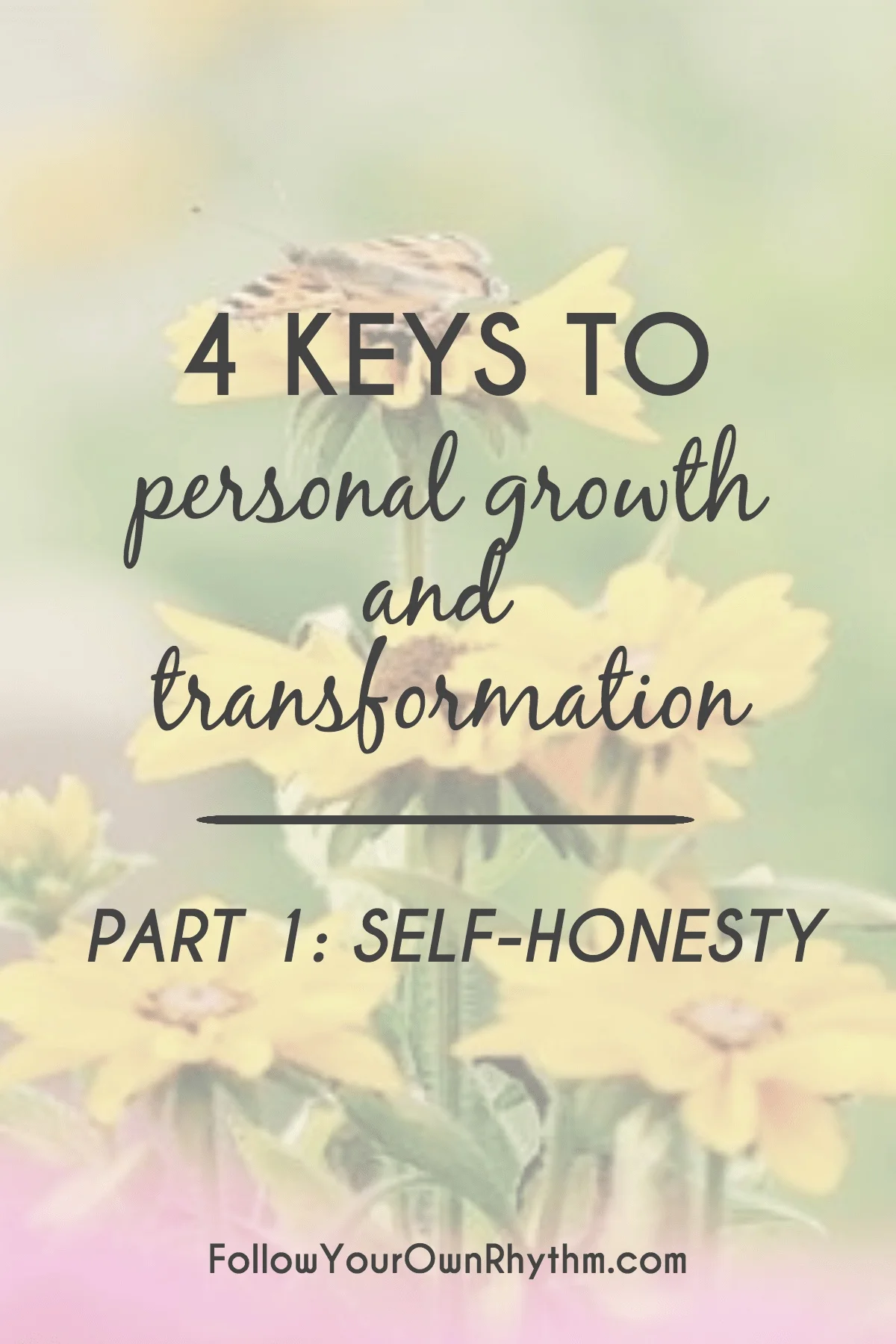
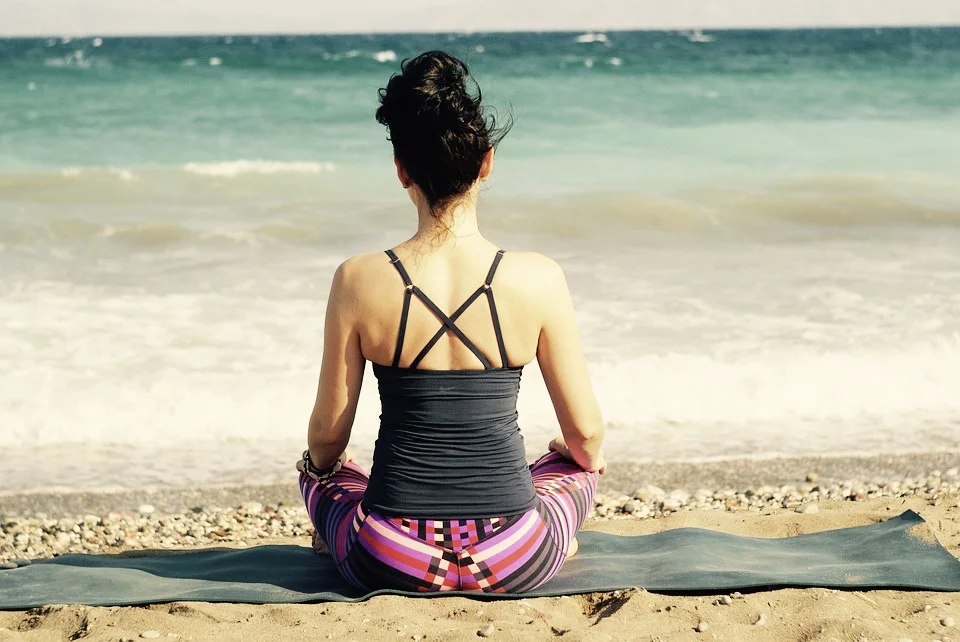
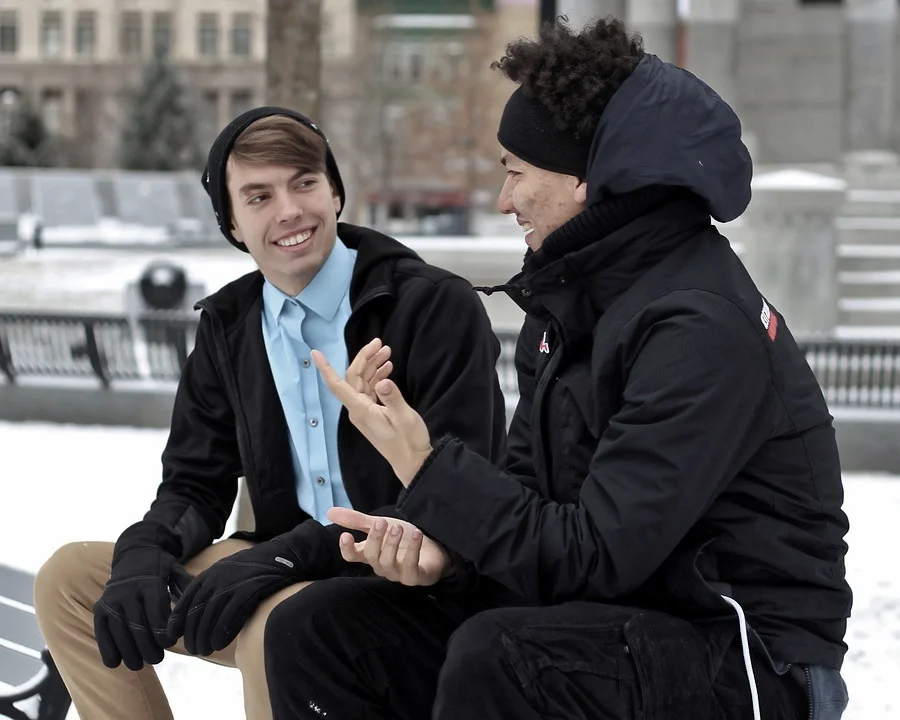

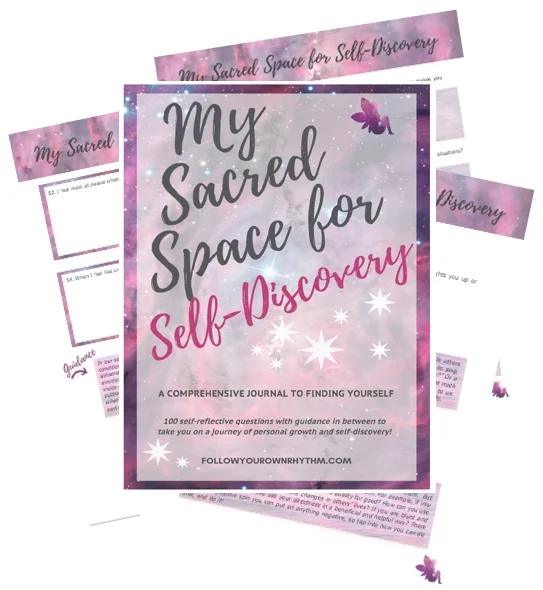

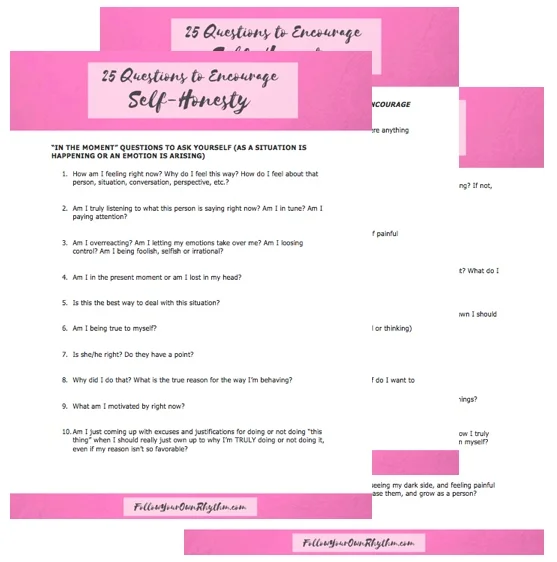

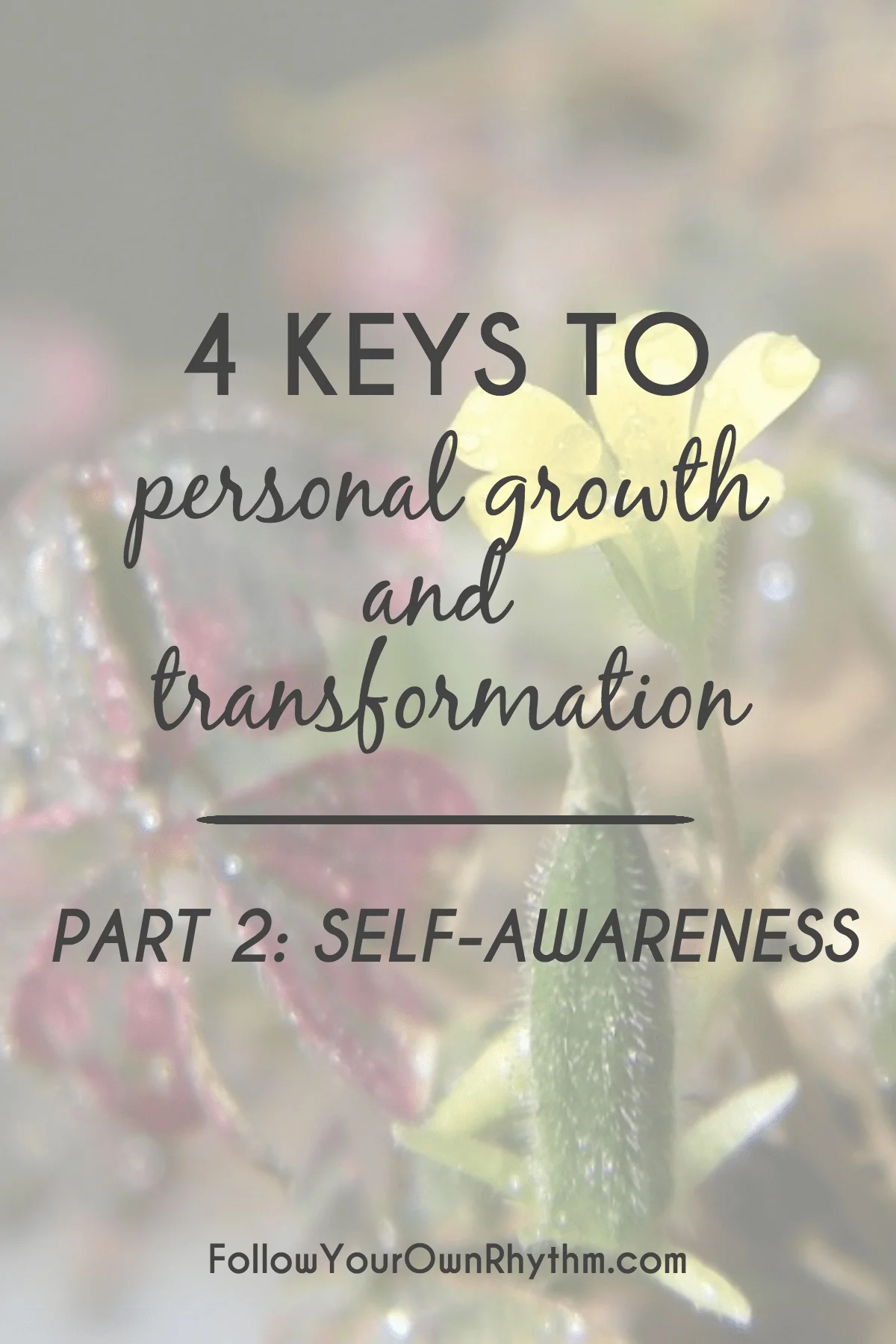
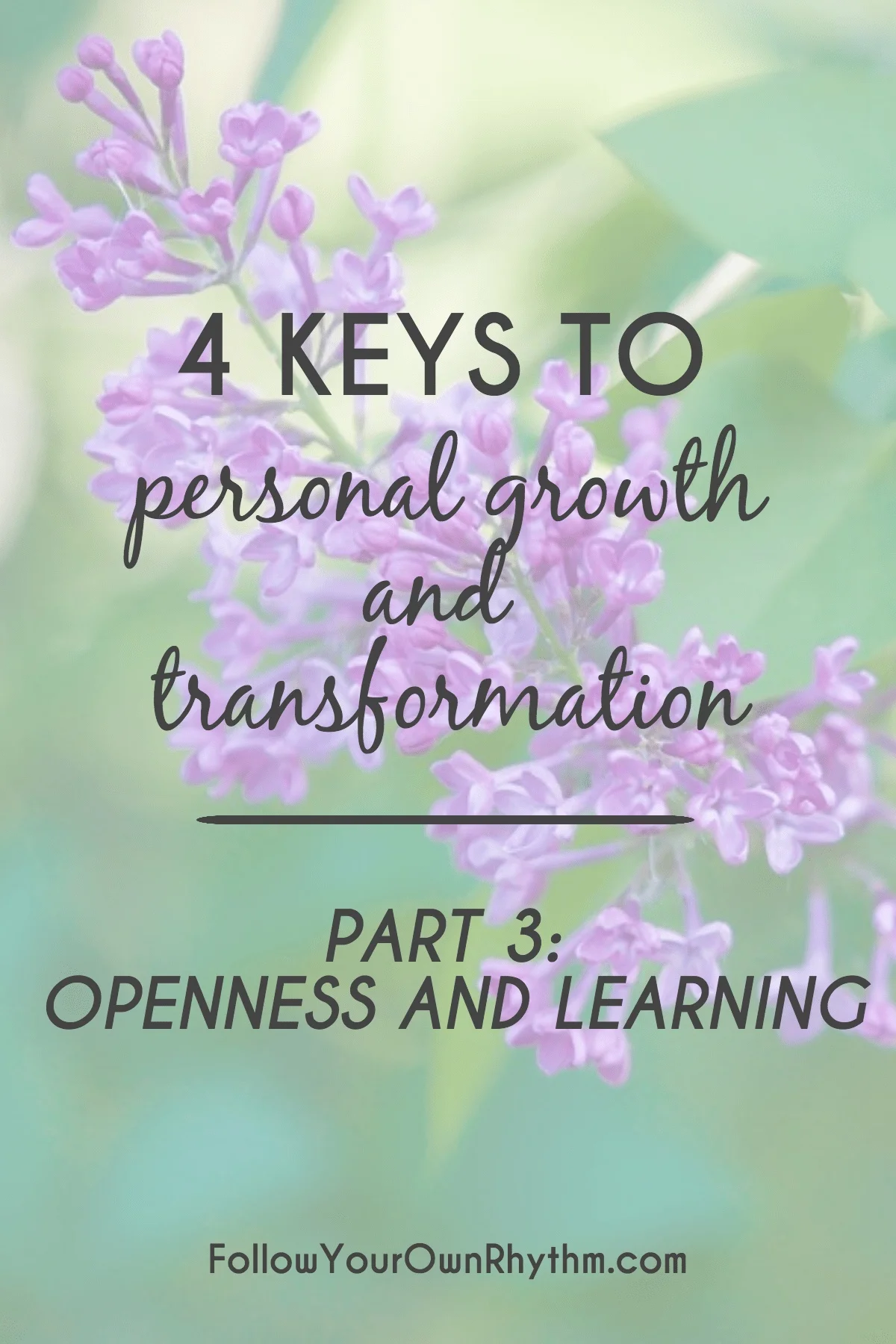


Find out why your manifestation is not coming or why it's delayed. These 5 spiritual reasons will give you a greater understanding of what is going on behind the scenes so you are not left wondering or thinking that the universe forgot about you.
In this video I share 9 signs that you have met members of your soul tribe and soul family, whether platonic or romantic.
In this video I share 5 ways to quickly raise your vibration when you're in a funk, as well as why it's so important to remain in a high vibration.
In this post I share the 3 biggest, best, most life changing decisions that completely transformed my world and put me on the path to living my most authentic, soul aligned life. I also share some ways that you can know if you are making the right decision, and hopefully you can be inspired to make them too.
In this post, I share 3 practical ways that you can connect with your deeper self when you're feeling lost, alone, or spiritually off.
In this post, I share 5 specific ways that your intuition tries to talk to you or send you messages. These are all things that come from within, and paying attention to it will help you live more aligned to your authentic self.
In this post, I talk about what “passion” means, how it relates to your life purpose, and some tips on how to discover your passion.
In this video I talk about the basics of numerology to give you a better understanding, and what your birthday and name reveals about you. I show you how to calculate your 4 main numbers which is your life path derived from your birthday, and your soul urge, personality, and destiny number derived from your full name. I also show you how to find your personal year cycle.
In this video, I share 10 misconceptions about what it means to be a spiritual person. These misconceptions I talk about are false beliefs we have, as spiritual people, about what it means to be spiritual so that you can get inspired to experience life more fully and feel more free to be yourself!
In this video, I talk about the difference between when your ego and fear is telling you not to do something in order to protect you and when your intuition is trying to guide you despite the fear that you feel. I discuss 3 different situations in which fear creeps up and how to tell when your true self is speaking to you.
In this video I share what to do after a breakup and how to find happiness being single and alone.
In this video, I share my perspective on what I believe our soul purpose and spiritual mission is here on earth as humans.
This is a free guided meditation to help you connect with your higher, true, authentic self.
In this video, we talk about why you were born with the gifts that you have, and the importance of sharing them with others!
In this video, I share my story of spiritual awakening and the journey that led up to it, what it felt like and what I realized, and all the ways it's transformed me. I also talk about my divorce, the dark night of the soul, self-love, and how you will know when you have found YOUR truth.
In this video, I take you through the emotional process of achieving your goals, including the feelings of fear, doubt and anxiety that creep in, and HOW to overcome them so you can stay motivated and keep moving forward.
In this video, we are talking about what self-empowerment is and why it’s so important, tips on how to become more empowered, and I will also be introducing a powerful tool that I created that will help you stay in your power each day!
In this video, we are talking about rejection, why it hurts so much, the psychology behind why we take it personally, and 4 tips and new perspectives that will make it easier for you to deal with rejection so you can regain your confidence.
In this video, I go into detail about what intuition is, why we have intuition, how to live intuitively, how to tell when your intuition is speaking to you, how to strengthen your intuition, how to use it when making decisions, and much more!
Your birthday holds powerful energy, and if you use it wisely, you can maximize the energies to let go of what no longer serves you, manifest new goals and desires, and reconnect with your deeper self. Check out this video for tips on spiritual practices for your birthday!
We face tremendous pressure in this world to fit in, because if we express our true selves, we face the possibility of rejection, disapproval, and judgment. However, nothing will make you feel more whole than being authentic. So in this video, I share with you 3 ways to make it easier to be yourself.
If you are on a soul searching journey and are wanting to SPEED UP the process, find your true self, connect to a higher truth, and have a spiritual awakening, then in this video I offer 7 tips that will help you do that!
Do you embrace ALL of who you are or just the parts of you that culture has told you is lovable? And what happens to the “other” parts of you? Where does it go? In this video, I discuss what the shadow self is and why it’s so important to integrate it in order to be your full, whole, authentic self.
I feel like often times "living spiritually" or being on a spiritual path gets misunderstood. In this video, I clarify what it actually means to be on this spiritual journey, so we can all live aligned to our true purpose.
I believe that this world pandemic is here to teach us a lot. It’s giving us lots of opportunities to grow as a person, heal, and become aligned with our true selves . In this video, I compiled 11 spiritual lessons you can learn from the Covid-19 pandemic that will catapult your spiritual evolution, and bring you lots of peace.
Fear is a pretty powerful force that will take over our mind if left unchecked. But we CAN control it with the right tools and mindset. In this video, I share how to move our of fear and into a calmer state of being.
Do you have a lot of time on your hands? Are you often alone but don’t know how to enjoy yourself? Do you dread being alone? Read on to learn how to love your own company.
This is a tough time, and it’s easy to become worried and stressed, however, that’s no fun and no one wants to live that way. Here are 3 helpful mindsets to adopt to stay sane, calm, and healthy during this chaotic time!
What does it mean to “be?” Why do we need to take a break from “doing?” Why is it so important to incorporate more “being” into our life? In this blog post, I share a spiritual perspective on the art of being and why I decided to take a break from my self-created responsibilities and live more in flow with life.
Confidence is an inside job. Real, true, deep and lasting confidence cannot be attained by doing something on the outside or by getting lots of compliments and being liked by others. The key to radiant self-confidence is to develop a positive relationship with yourself. Read on to learn the 5 essential keys to true and lasting confidence.